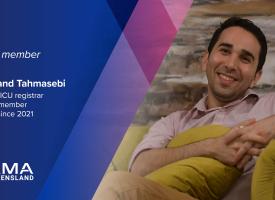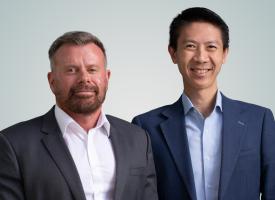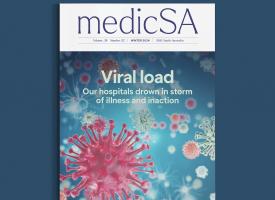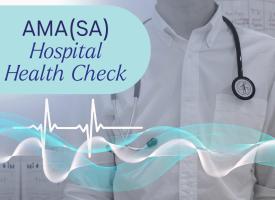Transcript - Dr Gannon & Dr Kennedy - AMA Safe Hours Audit
Transcript: AMA President, Dr Michael Gannon and Dr Tessa Kennedy, AMA NSW Doctors in Training Committee, Weekend Sunrise, 23 July 2017
Subject: AMA Safe Hours Audit
ANDREW O’KEEFE: Sleep deprivation is nothing new in the world of hospital doctors. But a new safe hours audit shows half of them are working hours that put them at risk of fatigue - and therefore us at risk of harm – 118-hour weeks.
MONIQUE WRIGHT: Now some of these doctors are responsible for performing life-saving surgery whilst doing these shifts. So it seems reasonable to ask, are they putting lives at risk?
[Excerpt]
REPORTER: Sleep deprivation can make people do all sorts of things. Some wear it better than others.
[Excerpt - baby murmuring]
REPORTER: But on the flip side, sleep deprivation can be very dangerous. Just one night of no sleep impairs movement and focus comparable to having a body alcohol level of 0.10 - twice the legal limit. After two nights, your oxygen intake decreases and you may start to stumble and forget the words you're trying to say. Doctors in our hospitals are regularly working shifts that put them at significant risk of developing these symptoms. Seventy-five per cent of doctors working in intensive care work hours that put them at risk of fatigue - 73 per cent of surgeons and 58 per cent of obstetricians and gynaecologists.
Doctors at the John Hopkins Hospital in Baltimore in the US were asked about this aspect of their job for a documentary.
DOCTOR: I think, a lot of people get used to this chronic sleep-deprived state.
DOCTOR: I usually take little naps at traffic lights.
DOCTOR: Yeah, it's a beautiful thing and you wake up when the horn honks behind you. The other trick is to take the ammonia capsules and break this and leave this on there so when your head drops down, you sense the ammonia and you wake up. Works pretty well [laughs].
REPORTER: Despite the light heartedness, it's a serious issue and one that can put lives at risk.
[End of excerpt]
ANDREW O’KEEFE: Yeah, just drug yourself with ammonia. Joining us to discuss further is the president of the Australian Medical Association, Dr Michael Gannon, and Tessa Kennedy, chief of the New South Wales Doctors in Training Committee. Good morning to you both.
Now firstly to you, Michael. I mean it goes without saying that the kinds of hours we are talking about for many doctors and particularly doctors in training, with so little sleep under their belt, presents a real risk to them and others?
MICHAEL GANNON: It's simply not good enough, and our concern from the latest audit shows that there's been no improvement over the last five years. There is science behind this. The piece you just put to air compared having a sleepless night with having a blood alcohol level of 0.10. We know that even at the end of a shift, that you can see a level of impairment which is equivalent to being around 0.05, 0.06.
ANDREW O’KEEFE: And have you heard tales of the practical implications of this? I mean of doctors being harmed or of patients being harmed as a result?
MICHAEL GANNON: It's difficult to cite individual examples, and especially with the way things work in our public hospitals. People work in teams. There needs to be a number of things to go wrong for something to go wrong. But undoubtedly, we're talking about people who must be suffering a degree of impairment when they might be doing emergency surgery in the middle of the night like fixing a broken hip, when they might be doing something like delivering a baby in the middle of the night.
MONIQUE WRIGHT: Yeah. It is truly horrifying when you think about how important the work is that doctors are doing. Tessa, young doctors are especially sleep deprived. What impact do you see that it's happening on hospitals?
TESSA KENNEDY: So I think the impacts are really quite wide ranging when it comes to the young doctors themselves. We know that this is a significant contributor to distress and wellbeing at large. So safe hours is one of the things that we would be hoping we can improve to try and get doctors working in a healthier environment, in a healthier way. To be better and to be there for their patients in a more rested and able capacity.
ANDREW O’KEEFE: One would imagine that it would lead to a burnout, it would lead to depression...
TESSA KENNEDY: Absolutely.
ANDREW O’KEEFE: It would lead to all sorts of disorders.
TESSA KENNEDY: Yeah, so these things are really complicated and there's lots of things that feed into them and being tired makes anything harder - everybody knows that - and doctors are just humans just like everyone else.
MONIQUE WRIGHT: One of the reasons that's been given is that the older doctors feel as though they went through this initiation so that young doctors should as well. Do you think that the culture needs to be addressed?
TESSA KENNEDY: Absolutely. So when we talk about this issue of culture in medicine, it's really something that has grown up over many decades. And something that perhaps needs to change now with the changing face of health care. And so the old model of coming in, sort of living in the hospital for a couple of years, learning all there is to know and then going into the world, probably doesn't apply as much anymore now that training is longer, competition has increased, the pressures placed on young doctors are higher. And I think that actually burnout affects our seniors as well, and that's really difficult because the people that are meant to be supporting and mentoring and having time to teach and to train are being put under pressure too, as the public hospital system is feeling stretched from trying to do more and more with less and less.
ANDREW O’KEEFE: Yes. I imagine also, Tessa and Michael, that there is a certain amount of pressure the doctors place on themselves. I mean you are aware that you are responsible for the health and wellbeing of your patients. You feel like you don't want to let them down by cutting out after just 48 hours. But certainly there must be regulations that govern how long you can work at a time. Are there?
MICHAEL GANNON: Well, certainly, there is industrial law and that's according to the individual agreements between the AMA and the States and Territories. But the responsibility here falls on a number of people. We've got to change our cultures internally. So the learned Colleges, when they determine what needs to be done to achieve Fellowship at one of the Colleges, individual hospital administrators and individual hospitals have got a responsibility, and certainly individual senior doctors have a responsibility. They might be in charge of their units. They've got to think about these things when they set the hours and conditions of themselves and junior doctors.
MONIQUE WRIGHT: And Tessa, what do you see is the answer and what needs to happen?
TESSA KENNEDY: So I think addressing burnout is really one of the key things here. Now that sounds easy and you can say it in a line, but actually there's lots of things that feed into that. So that talks about trying to put some more guidelines in place, particularly in this State where we lack guidelines around safe work hours in our industrial arrangements. It means trying to actually figure out how much work doctors are doing because most of it is not written down.
ANDREW O’KEEFE: Yeah, right.
TESSA KENNEDY: You know, and that's the hours that you spend outside of what's rostered, that's the time you spend studying, doing additional masters degrees, PhDs, research, et cetera. And it also means trying to- as Michael said, change the culture in the hospitals to be one of a more supportive, more encouraging environment, where it's okay to admit that you're human and that you fail because everybody makes mistakes, and that's okay.
ANDREW O’KEEFE: Yeah, sure. Do we need more doctors?
TESSA KENNEDY: In some places, yeah, absolutely, and in other places it's a matter of finding a more equitable staffing arrangement.
MONIQUE WRIGHT: Well, very wise words. Tessa and Michael, thank you both for being with us. It's certainly an issue that caught our attention here on Weekend Sunrise - because it affects all of us. So thank you so much for coming in.
TESSA KENNEDY: Thanks for having us.
24 July 2017
CONTACT: John Flannery 02 6270 5477 / 0419 494 761
Maria Hawthorne 02 6270 5478 / 0427 209 753
Follow the AMA Media on Twitter: http://twitter.com/ama_media
Follow the AMA President on Twitter: http://twitter.com/amapresident
Follow Australian Medicine on Twitter: https://twitter.com/amaausmed
Like the AMA on Facebook https://www.facebook.com/AustralianMedicalAssociation



